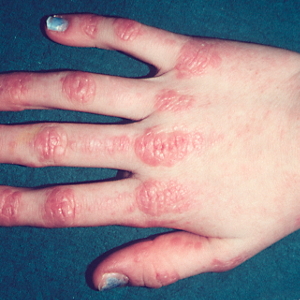Idiopathic Inflammatory Myositis

Idiopathic inflammatory myositis (IIM) is a chronic rheumatic muscle disease, which can be subdivided into polymyositis, dermatomyositis and inclusion body myositis. The etiology of the disease is largely unknown. IIM results in skeletal muscle weakness and pain, and muscles are infiltrated with cytotoxic T cells and macrophages. Other organs beside skeletal muscle are in some cases involved, such as inflammation in lungs, joints and heart. Corticosteroids is the main treatment strategy, in combination with antiinflammatory drugs. But while a majority of patients benefit from available treatment, many develop chronic muscle weakness and decreased function of daily life activities. There is clearly a major unmet medical need in this patient group.
In IIM, autoantibodies directed to Jo-1 (histidyl tRNA synthetase) are believed to play a role in the pathology of the disease. These may form immune complexes, which can drive inflammation in part through interferon type I induction. In our effort to contribute to the development of new treatments in IIM, we have focused on B cell biology as well as induction of type I interferon.



